
Image courtesy of Focus Features
HONK FOR JESUS. SAVE YOUR SOUL– 4 STARS
Like most films that employ the mockumentary storytelling device, Honk For Jesus. Save Your Soul relies on believable caricatures. We are watching actors pretending to be larger-than-life versions of people who are also pretending for their own on-camera voyeuristic observer. Often those types of mockumentaries bring out endless winks to the camera. That’s where Adamma Ebo’s film, adapted and expanded from her own successful short film of the same name, dares to push that challenge and straighten some of that screwiness.
Through impressive performances from Support the Girls star Regina Hall and This is Us Emmy winner Sterling K. Brown, Honk for Jesus. Save Your Soul has caricatures so believable that they transcend the winking-at-the-camera trope with vivid potency. There’s another level of “commitment to the bit.” We, the audience are not normally supposed to believe what we see from the characters but, with these two, we buy it.
Honk For Jesus. Save Your Soul presents married megachurch pastor Lee-Curtis Childs (Brown) and his “first lady” wife Trinitie Childs (Hall). Decked out in gaudy designer fashions and living out of a vast mansion, the two have a very manufactured social exterior as a unified team of ordained prosperity. “God don’t like ugly,” as Lee-Curtis asserts. They have enjoyed a luxurious life of excessiveness as the leaders of Wander to Greater Paths Baptist Church sitting on gold baller-level thrones. We’ve seen their materialistic type before.
LESSON #1: BE MINDFUL OF WHERE THE MONEY GOES– The lavish comforts that have blown tithes on and have become far too accustomed to are considered by Lee-Curtis to be “divine additions.” He calls ascending to this place of importance a result of hard work when we all know it’s really built on the backs and wallets of gullible parishioners and the less fortunate who fall for the sermonizing scheme. So much for any “live within your means” lessons at this house of worship. Honk for Jesus. Save Your Soul plays its part to stress that material prosperity is not the measure of godliness thanks to the bad examples of main characters.
Alas, the Wander to Greater Paths venue that would hold 25,000 people each service has been shuttered for months due to several sexual misconduct allegations levied against Lee-Curtis. The closure has shut the two off from the financial gravy train and the siphoned crowd energy they have long become dependent to acquire. You wouldn’t know it looking at Lee-Curtis and Trinitie still strutting like pariah peacocks ignorant of their legal trouble and big expenses.
The couple have become subjects of a documentary film crew as they, and all their hubris, are trying to re-open Wander to Greater Paths on Easter Sunday in grand comeback style through ineffective grassroots promotions. True to the Hydra of Greek mythology, “when one head is cut off, two grow back in its place.” Across town, they have competition in the form of Keon and Shakura Sumpter (TV actor Conphidance and Miss Juneteenth’s Nicole Beharie) and their modest church which is grown in the other’s absence. Both have earmarked Easter Sunday for a big service.
LESSON #2: HAVING YOUR WEAK MOMENTS DOCUMENTED– Another cardinal aspect of mockumentaries is the unvarnished exposure of their chosen fictional subjects fueled by shock and cringe. That’s where the extra cinéma vérité layer of the documentary film crew comes into play. There are few things a watchful camera catches better than mistakes and miscommunications. Starting with unholy f-bombs dropped from getting gum on fine Italian leather shoes, Adamma Ebo fills this movie with an endless parade of such “gotcha” sequences.
Probably one of the best examples of this is a scene involving the simplest disagreement of a big word. All hyped up in a preaching moment, Lee-Curtis starts to disrobe down to his skivvies and asks Trinitie to follow him to the balcony baptismal. Her apprehension and confusion is priceless while Lee-Curtis is undeterred and rolling. He dunks himself in self-congratulatory absolution and his rant crescendos to an “Amen!,” only one of them pronounces it with the long-A and the other with the short-A. The weight of the moment is lost and they know it. There’s no drying off and rewinded the sermon or the documentary.
Those are the kinds of things Ebo is trying to telegraph with the mockumentary structure. However, that choice and the layer of interview anecdotes are not maintained throughout the film. There are asides and entire scenes where Honk For Jesus. Save Your Soul loses its extra watcher and still tries to behave the same way. That inconsistency spoils a little of the style and effect of the messaging’s consistency. It does not, though, take away from the stellar acting.
Echoing the baptismal example, watch Regina Hall every second of Honk For Jesus. Save Your Soul and you will see fractured radiance. Hall may be one person, but she is playing two temperaments throughout nearly the entire film. There is Trinitie Childs, the exuberant cheerleader, and there is Trinitie Childs, the marginalized woman. The former couldn’t be louder and the latter is silently trapped at every turn.
LESSON #3: STAND BY YOUR MAN… AND HIS BULLSH*T– You see both personalities share moments separated by milliseconds of unmasked pivots and microaggressions. Track how Trinitie observes, reacts, recovers, and tries to badly sugarcoat anything she can with forced laughs, fake smiles, and quick catchphrases of scripture. So often, the marginalized woman is taken aback and has to jumpstart the exuberant cheerleader to save face for the team. No matter how low Trixie is questioned or reduced, by the time we reach the end of Honk For Jesus. Save Your Soul and her composure is breaking down in mime makeup, her defiant stance is, “This is my church. This is my husband. I’d sooner kill him than leave him.” That speaks volumes.
Regina Hall had the difficult parallel task of intentionally pronouncing, as the actress being filmed for a movie, what is supposed to be subtle for the on-screen character who is stuck with a camera in her face for an invasive documentary. Beat after beat, Hall plays Trinitie’s swerves with masterful calculation. When those cracks eventually increase to cave-ins and outbursts, as described before, the effort is even better.
True to the put-upon team of who and what they represent, Hall’s brilliance does not work without Sterling K. Brown’s electric performance of off-the-charts vanity. Spouting retorts like “Jesus Christ was all about the shock factor,” his character’s blaring volume of all traits (presence, pride, voice, personal issues, etc) become the cracks that Hall’s demure facade must stretch to patch. Lee-Curtis truly thinks he has saved himself and is blind to his path of emotional destruction of others. Whether Lee-Curtis Childs thinks his reputation is immune to any public scrutiny or he’s trying to decide which color Prada suit to wear, Brown brings powerful swagger to twist his character’s perception of sanctified justification of his excesses and conduct.
LESSON #4: CALLING SANCTIFICATION INTO QUESTION– To that point, “sanctify” might very well be the biggest target of the satire being attempted by Honk For Jesus. Save Your Soul. That selective word choice is slung around mighty flippantly in opposition to its definitions of “to set apart to a sacred purpose” and “to impart or impute sacredness, inviolability, or respect to.” Ebo’s film succeeds with its loose lens to make sure the audience is repulsed enough by what the married power couple is sanctifying, making the answer we want the most out of the repeated exclamation of “Won’t he do it? Won’t he will!” to be smack of reality across two aloof faces.




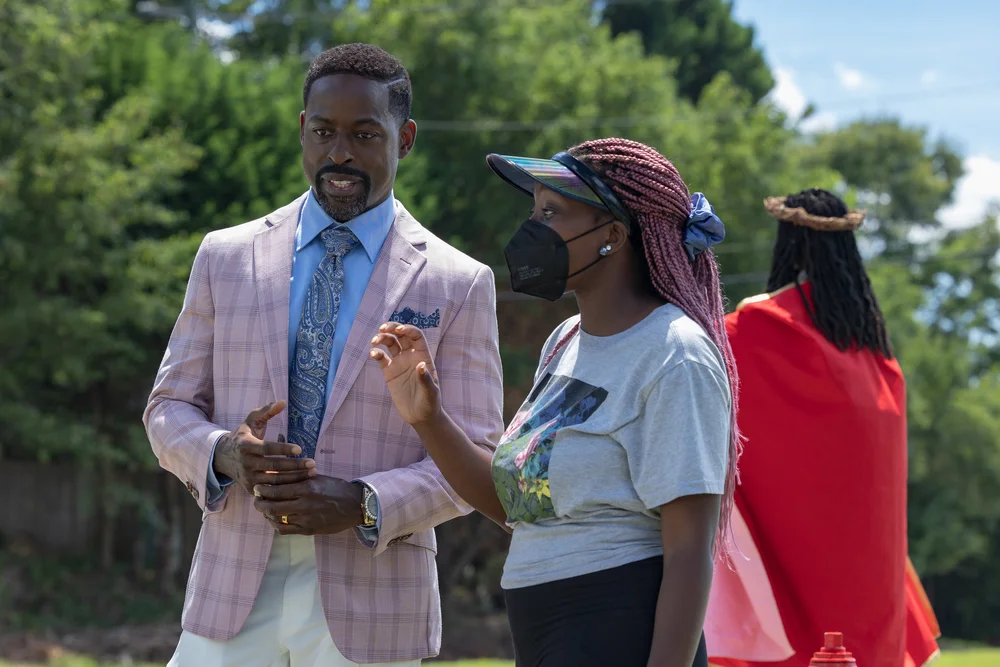
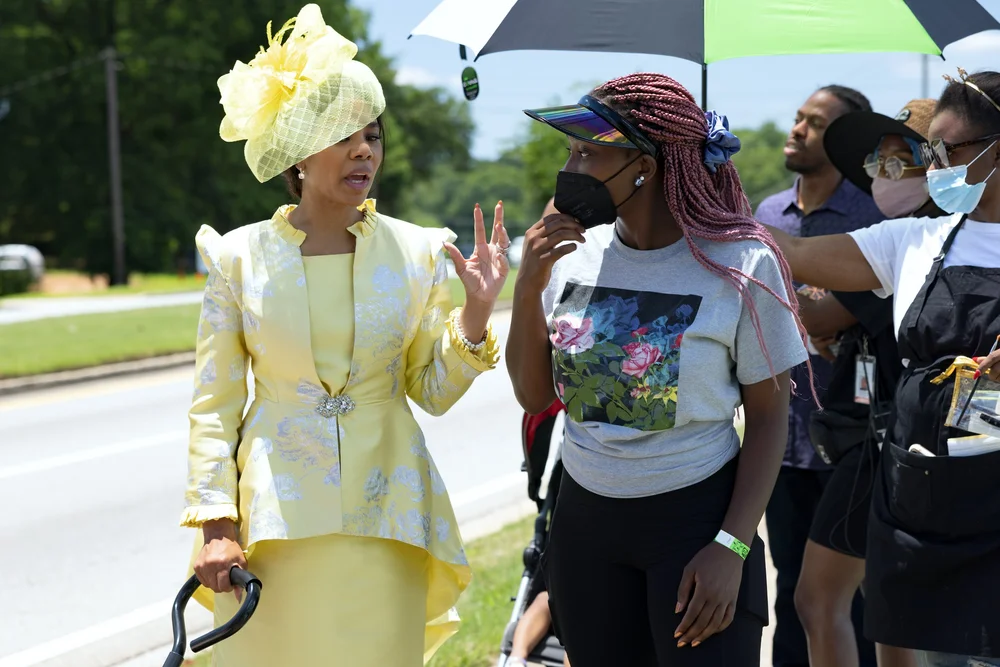

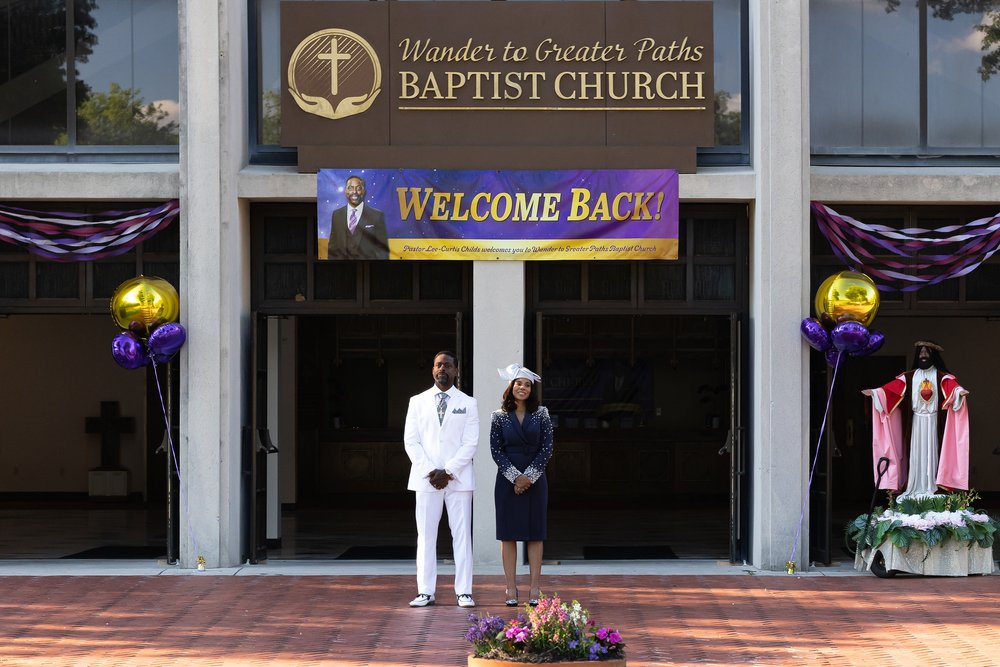

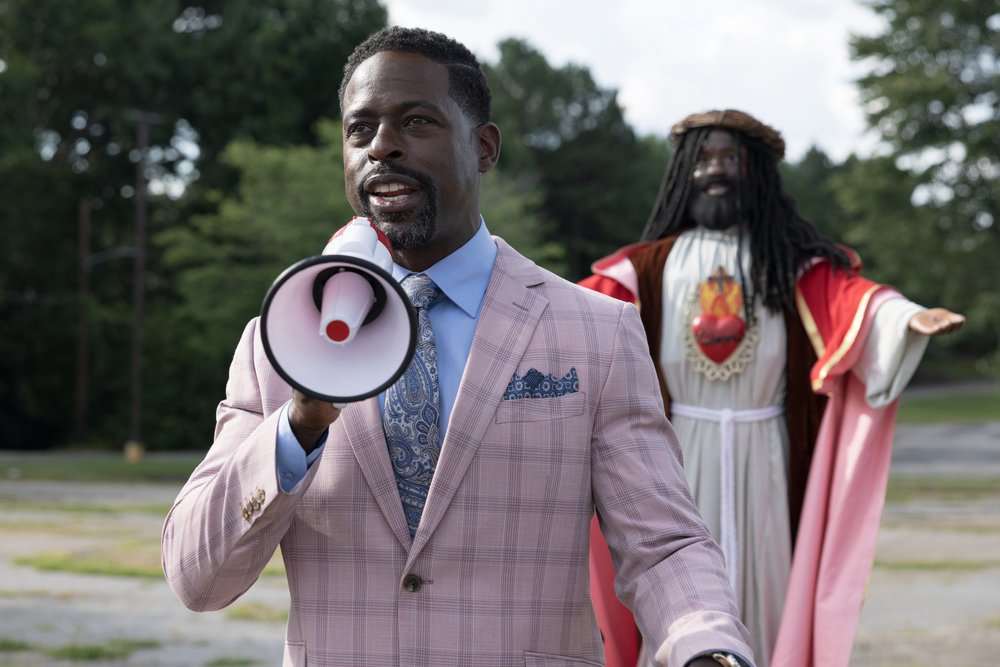

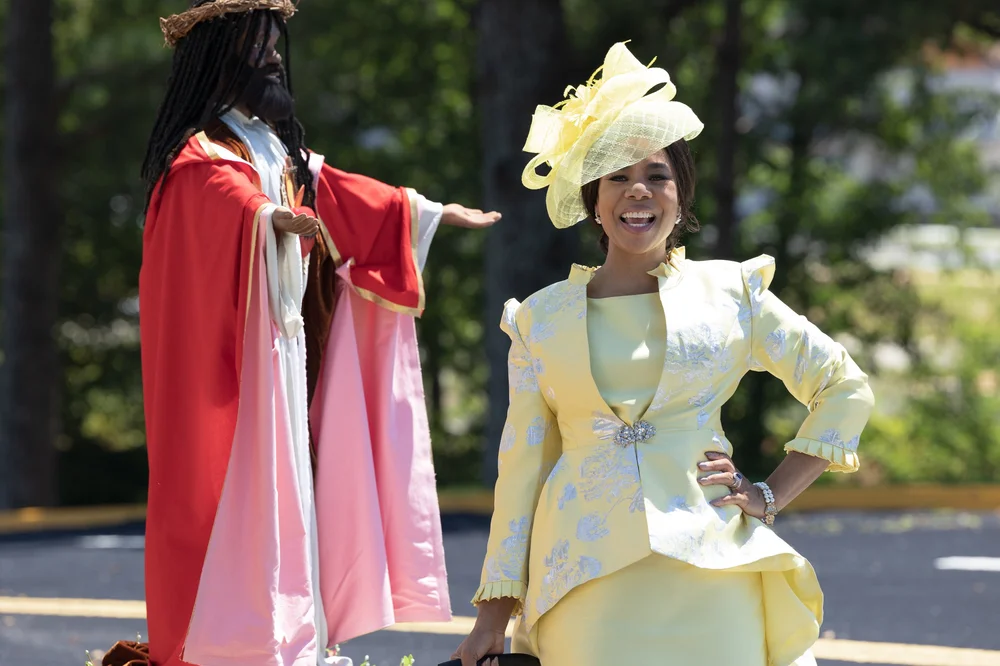
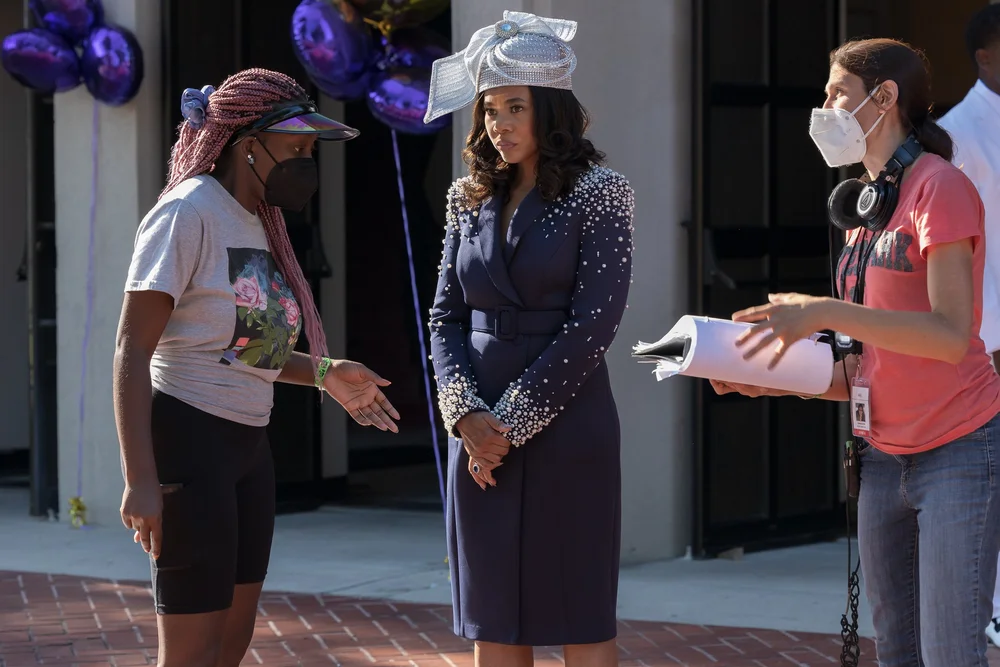

LOGO DESIGNED BY MEENTS ILLUSTRATED (#1065)
from Review Blog https://ift.tt/8oQTdxO







No comments:
Post a Comment